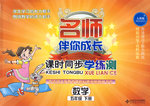题目内容
Illustrated Talks at London Canal Museum
Illustrated talks are held at 7:30 pm, on the first Thursday of each month except August. Admission to talks and museum is charged at the usual museum admission charges.
3rd September:
Protecting our Waterway Heritage by Nigel Crowe. Nigel is the Conservation Adviser to the Canal and River Trust(运河信托公司). He undertook a comprehensive survey of the heritage of the waterways when first appointed, and now advises the CRT on its protection.
1st October:
The Canal and River Trust by John Dodwell. Founding trustee and long standing waterways enthusiast(狂热者) John Dodwell will detail the Trust's progress to date. He will explain the issues they face and the limits under which they work.
5th November:
The work of the Thames Ironworks Heritage Trust by Gavin Redknap. Gavin was one of the founders of the Trust that is working to save and restore some of the few surviving craft built at the Thames Ironworks Yard at the mouth of Bow Creek. The Trust plans to use the fleet of restored one-hundred-year-old lifeboats for community projects on the Lower Lee.
3rd December:
The River Thames Society and the River Thames by Peter Finch. Peter, who is Chairman of the River Thames Society, will explain the role and function of the society and then go on to talk about London's river and some of the issues it faces.
1.When is the talk on the waterways' protection?
A. 5th November.B. 1st October.
C. 3rd September.D. 3rd December.
2.What is the topic of the talk in November?
A. The work of the Thames Ironworks Heritage Trust.
B. Protecting our Waterway Heritage.
C. The Canal and River Trust.
D. The River Thames Society and the River Thames.
3.________ will give the talk on the River Thames society.
A. John Dodwell.B. Gavin Redknap.
C. Nigel Crowe.D. Peter Finch.
 名师伴你成长课时同步学练测系列答案
名师伴你成长课时同步学练测系列答案
